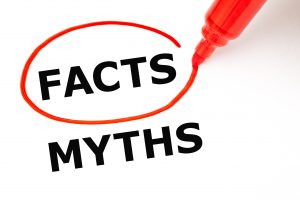Spot the Nutrition MYTHS & ask for the FACTS

Spring is in the air, a perfect time to take a fresh look at what’s hot and what’s not in food and nutrition. As a speaker, teacher and consultant, I’m always connecting with professionals and nutrition students. I find there is a surprising increase in questions about myths and misleading nutrition advice. More and more people come forward with confusing nutrition information that hold them back from achieving their goals. According to a recent survey of dietitians the top sources of nutrition misinformation for consumers are celebrities, friends/family, blogs and social media. Don’t get trapped by myths – ask for science based facts from the experts.
Here are my top ten tips to help you spot misleading nutrition advice. Watch for these warning sings in the language used to provide you with information.
Top 10 tips to spot the Nutrition MYTHS:
- Quick fix promise
- Extreme warnings about a food or food group
- Sensational claims that sound too good to be true
- Personal beliefs /opinions presented as facts (Notice the use of language like “I believe” and don’t confuse someone’s confidence in their belief with credible scientific evidence.)
- Advice based on a single study or from a ‘study under way’ or observations
- Statements that are not supported by credible scientific associations (e.g., Dietitians of Canada, Heart and Stroke Foundation, Diabetes Canada, Health Canada)
- Lists of “good” and “bad” foods
- Testimonials endorsing the product, often from celebrities or highly satisfied customers
- Aims to sell food products or supplements
- Undermines a healthy, enjoyable relationship with food
BOTTOM LINE: If you’re looking for credible food facts check out blogs, social media tips and recipes written by registered dietitians. Dietitians are the most trusted credible food and nutrition experts who understand the science behind food and its connection to health. Contact us for help to translate the power of food for your team and business.